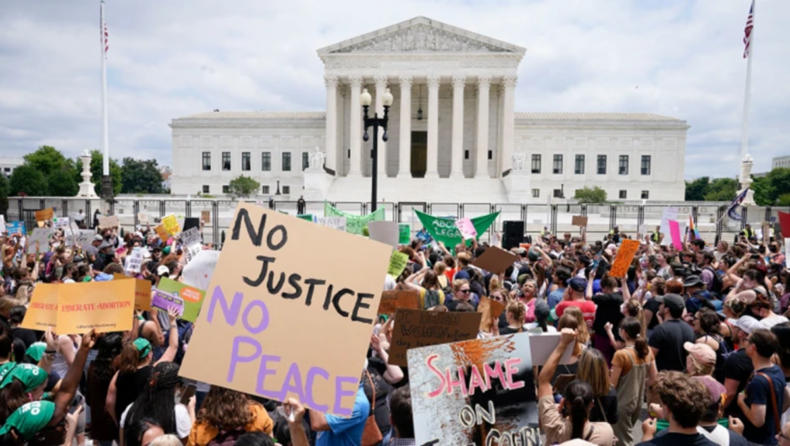Does a woman have the right to choose abortion? This question is at the heart of a social debate reignited by a likely legal turnaround in the US
Is a woman permitted to choose abortion? This subject is at the center of a renewed social discussion in the United States sparked by a change in the law.
The Supreme Court of the United States has revoked a constitutional right provided in the 1973 Roe v. Wade decision, which legalized abortion nationwide. A paper detailing the opinions of justices had already shaken the United States, and pro-choice protestors had taken to the streets.
But what is this five-decade-old verdict that has been overturned?
Whose names are these?
Jane Roe was the alias of Norma McCorvey, who was 22 years old, unmarried, jobless, and pregnant for the third time in the state of Texas in 1969. By the time the U.S. Supreme Court decided in her favor, McCorvey had already given birth to and put for adoption a baby girl. As a result of her legal struggle, however, others were granted access to abortion services.
Henry Wade, the district attorney of Dallas County, Texas, was tasked with enforcing a state statute forbidding abortion (except in life-threatening circumstances). Technically, he was the one against whom Roe/McCorvey filed suit when she requested an abortion.
What was the 1973 verdict?
The question before the US Supreme Court was: Does the American constitution recognize a woman’s right to terminate her pregnancy by abortion? The court ruled that a woman and her doctor must choose to undergo an abortion during the first three months of her pregnancy.
Since this was a Supreme Court ruling, it superseded all prior abortion-related legal disputes in the United States.
What happens after the overturn?
A reversal of the 1973 ruling would allow individual states to determine whether or not abortion is allowed. In a nation whose political and social ideas have been sharply split in recent years, this will result in varying laws across the United States.
In the southern and western states, religious and social conservatism is especially prevalent. Conservatives, who have generally supported the Republican Party, argue that life starts at conception.
The liberals, who are mostly identified as Democratic Party supporters, assert that this issue pertains to a woman’s freedom to choose. Therefore, in the comparatively liberal state of California, the governor stated, “We would fight like hell against any reversal.”
However, leaders in conservative states such as South Dakota, Arkansas, Georgia, and Indiana planned special legislative sessions to outlaw abortions as soon as the Supreme Court reversed the ruling.
Many states already have strict rules, but the Roe vs. Wade ruling meant they could not go too far. With the reversal of the ruling, at least 13 states now have the legal authority to outlaw abortion immediately or within 30 days. Exceptions to these regulations would be made if the woman’s life or health is at risk. However, many do not allow exceptions for pregnancies resulting from rape or incest.
However, according to analysts, even if the Supreme Court overruled Roe v. Wade, more than half of U.S. states may still permit abortions, although the majority of states in the Midwest and South may not.
What can women do?
Due to anti-abortion laws, many women are in danger of obtaining abortions outside of institutional care.
According to a New York Times story, once the Roe v. Wade precedent is overturned, the United States will appear substantially differently to various individuals.
Abortion may still be accessible to women in comparatively liberal Democratic states and to other women with the wherewithal to go to a clinic.
However, impoverished women in many Republican-controlled areas may find it hard to travel to other states for clinic-based abortions.
Where’s the politics at?
The Democratic Party has traditionally been pro-choice, as seen by President Joe Biden’s stance on abortion. This fall, the United States will hold midterm elections, and President Biden has pledged to make abortion rights a defining issue.
Republicans and other conservatives have mostly maintained their “pro-life” position opposing abortion rights. And they will view the overthrow as a triumph.













